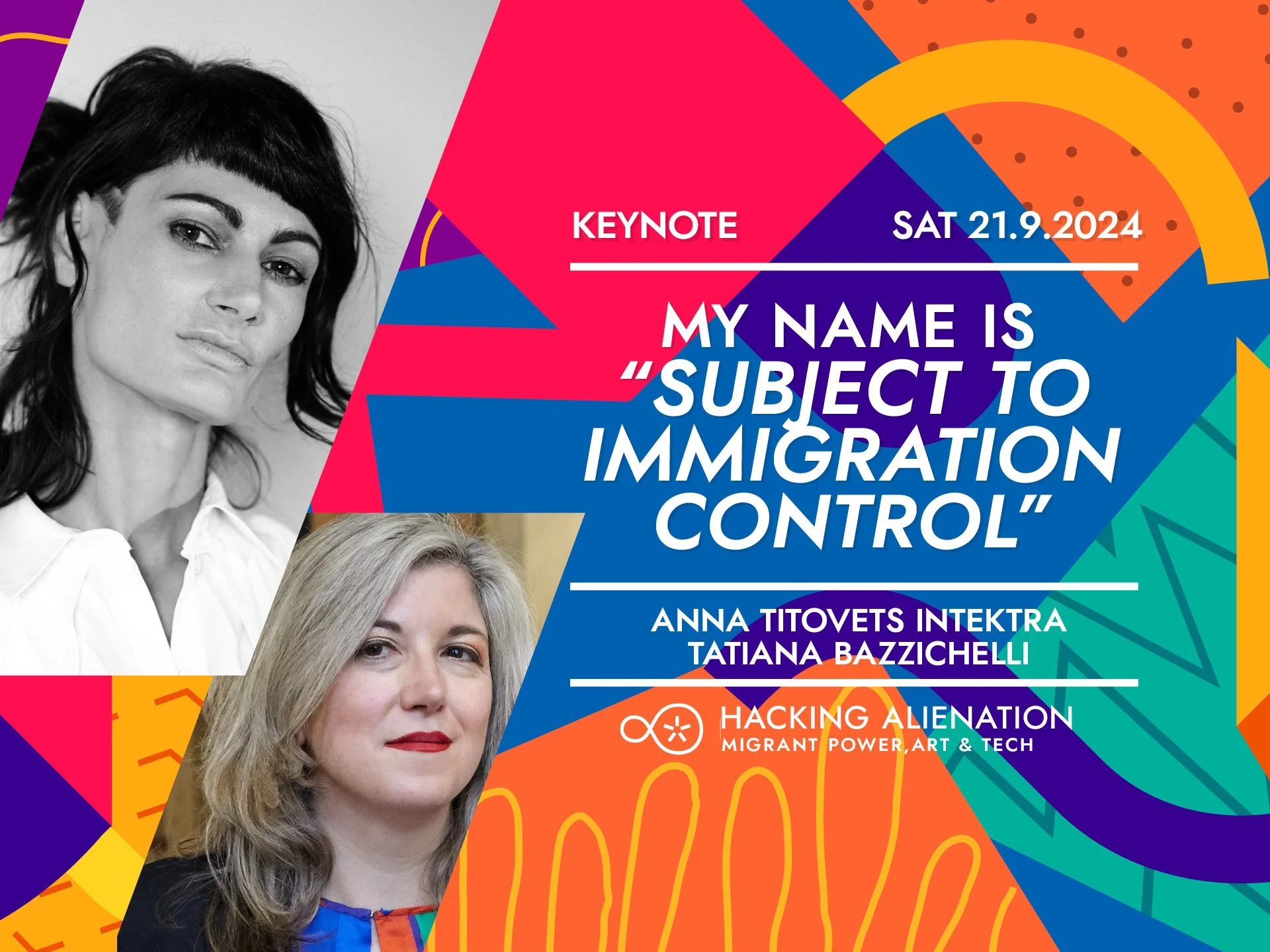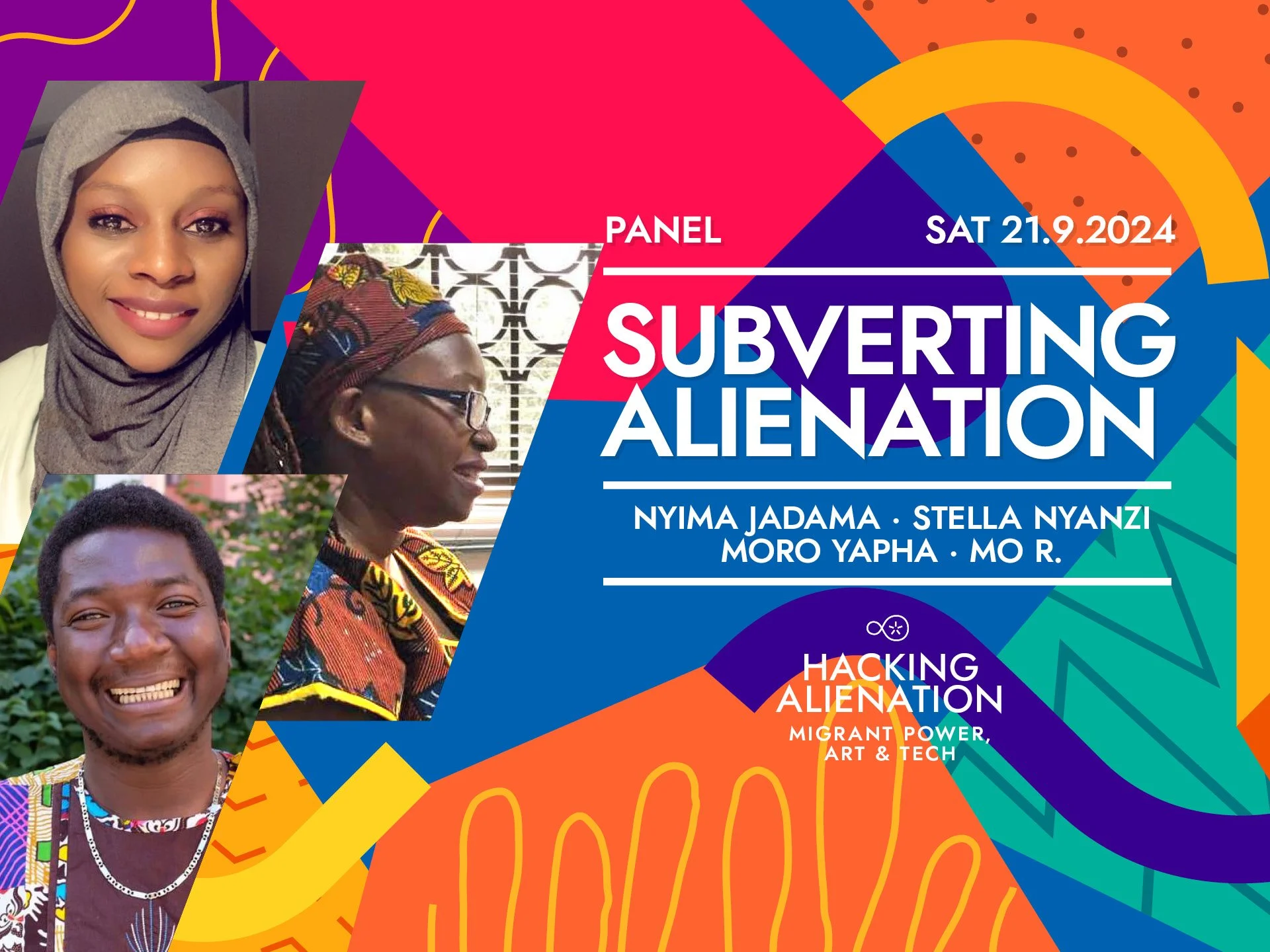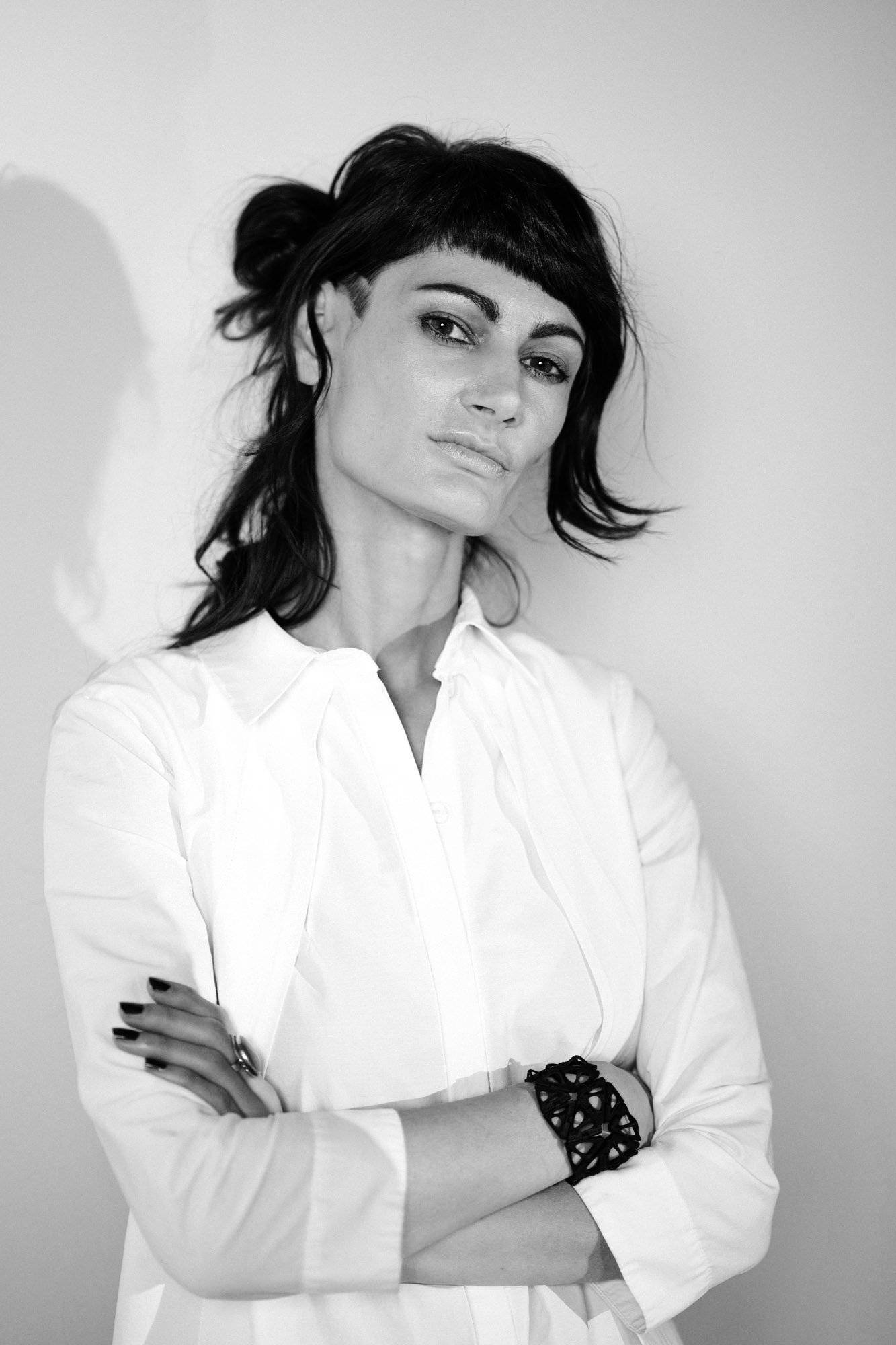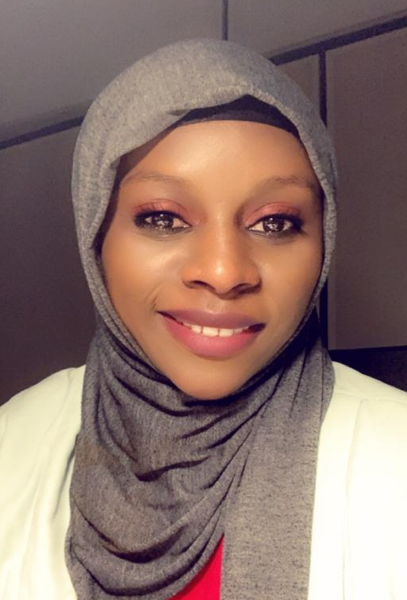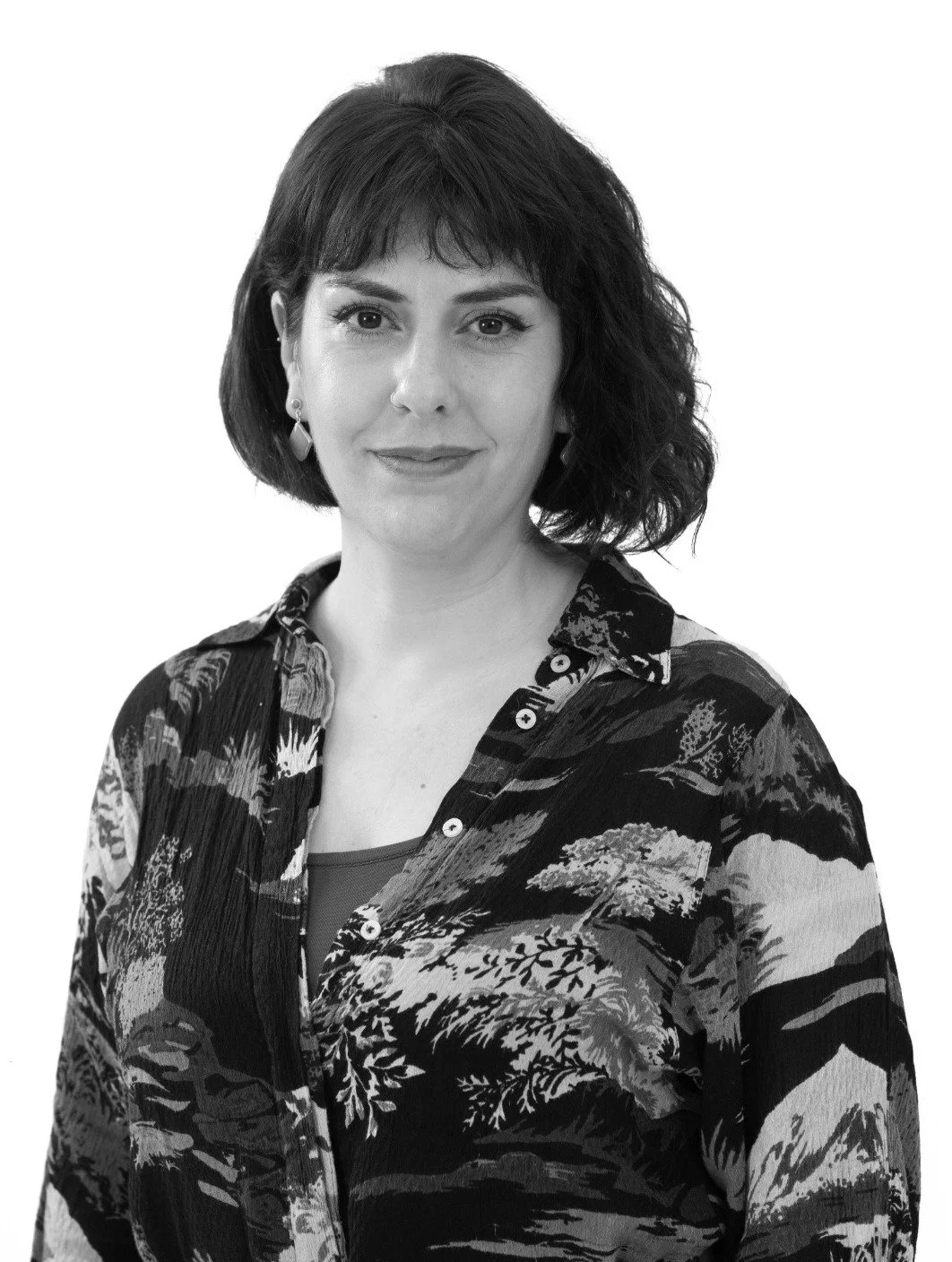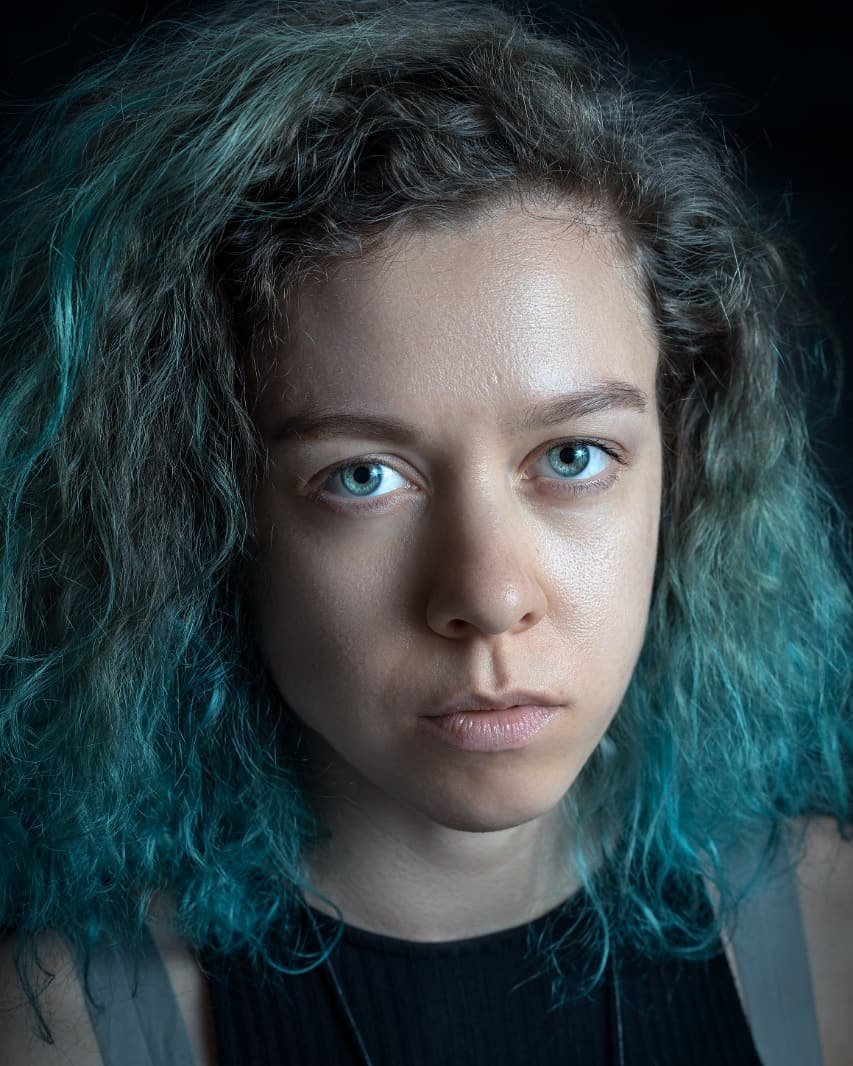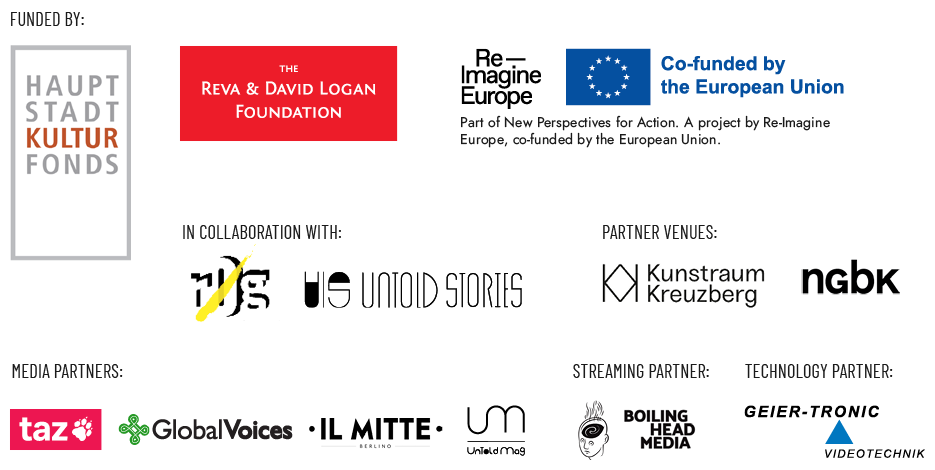#DNL33 · September 21–22 · 2024
HACKING ALIENATION
Migrant Power, Art & Tech
THE 33rd CONFERENCE OF THE DISRUPTION NETWORK LAB
studio 1, KUNSTQUARTIER BETHANIEN, marianneplatz 2, 10997 Berlin & STREAMING
Curated by Tatiana Bazzichelli (Director, Disruption Network Lab, IT/DE)
in collaboration with Untold Stories and r0g agency
tickets available at the desk too (cash only)
Streamed for free. No registration required to follow the stream.
Workshops are not streamed
Videos · Schedule · Introduction · Full Programme · Workshop · Speakers · Tickets · Press
Keynote: My Name Is "Subject to Immigration Control"
Panel: Decolonising AI
Panel: Subverting Alienation
Click thumbnails to load YouTube videos
Anna Titovets Intektra (Artist, Curator and Researcher, RU/PT) · Nyima Jadama (Activist and Moderator, GM/DE) · Milagros Miceli (Sociologist and Computer Scientist, AR/DE) · Marwa Fatafta (Researcher, Policy Analyst and Digital Rights Expert, PS/DE) · allapopp (Digital Media and Performance Artist) · Walid El-Houri (Researcher and Editor, LBN/DE) · Stella Nyanzi (Activist, Poet and Digital Rights Defender, UG/DE) · Moro Yapha (Migration and Human Rights Advocate, GM/DE) · Dinara Rasuleva (Writer, Poet_ess) · Mo R. (Project Lead, Tactical Tech, EG/US/DE).
Speaker BioS ⌄
Defeating systemic alienation and oppression through art and technology.
THE 33rd CONFERENCE OF THE DISRUPTION NETWORK LAB
Curated by Tatiana Bazzichelli (Director, Disruption Network Lab, IT/DE).
in collaboration with Untold Stories and r0g agency.
LOCATION: STUDIO 1, KUNSTQUARTIER BETHANIEN, MARIANNENPLATZ 2, 10997 BERLIN
STREAMED FOR FREE
Back to top
Schedule
Saturday, September 21, 2024 · Get Tickets
14:00 CET · Doors open
14:30–14:40 · OPENING
Tatiana Bazzichelli (Artistic Director, Disruption Network Lab, IT/DE)
14:40–16:10 · KEYNOTE · My Name Is "Subject to Immigration Control"
Anna Titovets Intektra (Artist, Researcher and Curator, RU/PT). Moderated by Tatiana Bazzichelli (Artistic Director, Disruption Network Lab, IT/DE).
16:30–18:00 · PANEL · Decolonising AI
allapopp (Digital Media and Performance Artist), Milagros Miceli (Sociologist and Computer Scientist, DAIR Institute, AR/DE), Marwa Fatafta (Researcher, Policy Analyst and Digital Rights Expert, PS/DE). Moderated by Walid El-Houri (Researcher and Editor, LBN/DE).
18:30–20:00 · PANEL · Subverting Alienation
Moro Yapha (Migration and Human Rights Advocate, GM/DE), Stella Nyanzi (Activist, Poet and Digital Rights Defender, UG/DE), Nyima Jadama (Activist & Moderator, GM/DE). Moderated by Mo R. (Project Lead, Tactical Tech, EG/US/DE).
Sunday, September 22, 2024 · Get Tickets
12:30–16:00 · WORKSHOP · Deconstructing Tech Futures: A Workshop on Critical Imagination
allapopp (Digital Media and Performance Artist), Dinara Rasuleva (Writer, Poet_ess)
HACKING ALIENATION: Migrant Power, Art & Tech
Defeating systemic alienation and oppression through art and technology.
Curated by Tatiana Bazzichelli (Director, Disruption Network Lab, IT/DE)
In collaboration with Untold Stories and r0g agency
Funded by: Hauptstadtkulturfonds (The Capital Cultural Fund), The Reva and David Logan Foundation. Part of New Perspectives for Action. A project by Re-Imagine Europe, co-funded by the European Union.
In Collaboration with: Untold Stories and r0g agency.
Partner Venues: Kunstraum Kreuzberg /Bethanien, nGbK.
Media Partners: taz, global voices, Il Mitte, untold magazine.
Streaming partner: Boiling Head Media.
Technology Partner: Geier-Tronic.
HACKING ALIENATION: Migrant Power, Art & Tech explores how art and technology can enhance the political agency of those who lack citizenship rights and experience systemic alienation due to war, political conflict or other sources of oppression.
Migrant groups and individuals are at the forefront of facing racism, oppression, and discrimination. We can only overcome these injustices by adopting innovative strategies of systematic change that, rather than policing and maintaining borders of exclusion, subvert them and create pathways of solidarity and accountability. Together with activists, artists, advocates, researchers and developers with a migration background, this conference discusses how technology and media can be used to imagine future strategies that urge community building rather than enforcing a state of integration. The artistic approach will play a central role, contributing to the introduction and generation of new tools of awareness and experimentation, as well as providing literacy in the context of big data, machine learning and smart technologies.
The two-day event develops a range of technological and artistic interventions to participate in shaping cities and digital environments in a self-determined manner. The conference will promote cross-sectoral discussions and tools for direct participation, both online and offline, reimagining the parameters of migration beyond national affiliation.
The conference will feature a keynote speech, two trans-disciplinary panel discussions (21 September) and a workshop (22 September). The sessions will cover: Technological and artistic interventions to participate in the making of our cities and digital environments; How art, media and technology can enhance the political agency of those disenfranchised by forced migration; The politics of surveillance, digital 'inclusion' and its subversion; Agency and self-determination between media, art and protest.
Anna Titovets [Intektra], an interdisciplinary artist, curator and researcher at the intersection of art, tech-nology and society, will focus on practical survivalist strategies, community-building approaches, and challenges in the process of fighting for social equality, searching for a sense of (digital) belonging, reshaping identity, and protecting social rights with digital means and technologies.
In migration contexts, digital technologies and big data collection are too often programmed to be used for tracking, surveillance, and profiling. allapopp, Milagros Miceli, Marwa Fatafta and Walid El-Houri will talk about the importance of decolonising AI. They will discuss the power asymmetries embedded in the design, production and development of machine learning, digital surveillance, data generation and labelling.
Stella Nyanzi, Nyima Jadama, Moro Yapha and Mo.R. will present individual stories of empowerment and agency through the conscious use of media in the struggle for equal rights and justice for all, drawing on their direct experiences as activists, human rights advocates, writers and migrants in Germany.
Finally, in their imaginatory workshop, allapopp and Dinara Rasuleva address from a situated perspective the need to deconstruct and shift the rather homogeneous dominant narratives of technological futures as acts of self-empowerment and possibilities for political participation and change.
This conference builds on the interdisciplinary discussions and new insights generated by previous Disruption Network Lab conferences, such as Data Cities, which focused on the role of AI, human rights and big data in smart cities; Borders of Fear, which examined the role of technology and surveillance in policing national borders; and Citizens of Evidence, which explored the investigative impact of grassroots communities and citizens to expose injustice, corruption and power asymmetries.
Back to top
Full Programme
Saturday, September 21, 2024 · Get Tickets
14:00 CET · Doors open
14:30–14:40 · OPENING
Tatiana Bazzichelli (Artistic Director, Disruption Network Lab, IT/DE)
14:40–16:10 · KEYNOTE · Register
My Name Is "Subject to Immigration Control"
Anna Titovets Intektra (Artist, Researcher and Curator, RU/PT). Moderated by Tatiana Bazzichelli (Artistic Director, Disruption Network Lab, IT/DE).
Floating, fighting, surviving: digital tactics, strategies, and challenges of defeating the alienation of migrants.
According to statistics, at the end of 2023, an estimated 117.3 million* people worldwide have left their home countries due to wars, conflicts, human rights violations, or because of the potential dangers connected with their ethnicity, religion, sexuality, or political opinions. When moving to a new country, migrants not only lose their roots and part of their identity but also acquire a new label from the point of view of the law. This label – be it “refugee,” “migrant,” “immigrant,” “displaced person,” or “asylum seeker” – becomes a rather crucial determinant of a person's life and rights in the new country. It's not only a matter of legal status but depending on the type of this label people become more or less unseen, oppressed, or alienated in society.
Modern immigration involves not only a physical change of geography but also relocation to a new digital environment. Despite the prevailing idea of digital globalisation, each country and even each city has its local characteristics in the digital fabric of society, digital bureaucracy, and policies towards data protection, privacy, and surveillance.
The keynote will focus on practical survivalist strategies, community-building approaches, and challenges in the process of fighting for social equality, searching for a sense of [digital] belonging, reshaping identity, and protecting social rights with digital means and technologies. Among the tactics and tools to be mentioned are not only the creation of self-organised communities, but empathetic chatbots, social media groups with crowdsourced hacks and tricks, AI bots helping to solve different migration-related issues, and guerrilla chatbots for misbehavioral activist tactics helping migrants fight existing rules in the gig economy sector. The keynote will present some examples of artistic projects addressing alienation and migrant issues. Besides, it will examine the phenomena of digital ghettoisation and the challenges of the specific pre-conditioned experience of the city and culture shaped by Google services and ranking-based apps.
The talk is partly based on Anna Titovets’ personal experience of immigration as well as research and observations gained from recent participation as a mentor/curator in the Pause / Play: Culture Under Pressure project, which deals with the artists and cultural practitioners who had to relocate due to wars and conflicts.
Artistic and tech initiatives are important for highlighting the problematic areas of digital and other forms of discrimination and, ideally, should become a foundation for change. However, these initiatives should first and foremost be seen as practices of empowerment, utilising digital tools to foster a sense of support in resisting injustice.
*According to the data published by The United Nations refugee agency.
16:30–18:00 · PANEL · Register
Decolonising AI
allapopp (Digital Media and Performance Artist), Milagros Miceli (Sociologist and Computer Scientist, DAIR Institute, AR/DE), Marwa Fatafta (Researcher, Policy Analyst and Digital Rights Expert, PS/DE). Moderated by Walid El-Houri (Researcher and Editor, LBN/DE).
This panel brings together three different situated experiences of the development of AI technologies (including machine learning, digital surveillance, data generation and labelling), challenging the language used to describe them, their inner functioning and their application in both civilian and wartime contexts. Technologies are never neutral and reflect the biases, systemic structures and cultural paradigms of the geographical, social and political contexts in which they are developed. Furthermore, their usage is brining concrete consequences affecting the lives of marginalised communities and contributing in generating transational repression.
While engaging with recent developments in decolonial thought in the field of artificial intelligence, such as the Decolonial AI Manyfesto and embracing both personal hopes and discomfort caused by the expanding post-Soviet decolonial dialogue, with its new hot spot in Berlin, allapopp envisioned an ambitious experiment: to facilitate a conversation about technology in general, and the future with AI in particular, led by “us*- born on the (post)colonial margins of post-Soviet translocal experiences, cultural, geopolitical, and ethnic half-bloods.” By doing so, allapopp aims for these imaginations to enter a tangible realm of technological envisioning – envisioning futurities as a means of political participation and self-determination. And while doing so, allapopp continuously wonders: who is us*?
Through a specific investigation of data work, the often overlooked labour essential to creating datasets, Milagros Miceli discusses how it plays a critical role in shaping AI technologies. In this talk, she will present findings from the Data Workers’ Inquiry, a community-based research project conducted with 15 data workers. She will describe how issues of migration, exploration, and power shape data work, significantly impacting datasets and AI systems, and argue for the importance of addressing historical inequities, labour conditions, and epistemological standpoints when discussing AI Ethics. This talk will also highlight the need for new research questions and methodologies to better understand the complexities of AI data work.
Looking beyond the harms or 'side effects' of AI and its dangerous impact on marginalised and racialised communities, Marwa Fatafta's presentation draws on the current reality of occupied Palestine, where these technologies have been designed to automate systematic discrimination, human rights abuses, and large-scale killing. She will discuss Israel’s recent use of AI systems in warfare to surveil, target, and bomb civilians and civilian infrastructure on an industrial scale in Gaza and its implication on a global scale. Far from being an isolated issue in a faraway land, she will showcase how these battle-tested technologies and systems – and the industries behind them – are often repurposed to fuel the oppression and crackdown on migrants and minorities here in Europe. Finally, she’ll delve into the complicity of big tech in providing the technologies or services underpinning these abusive systems without transparency and how we can hold them accountable.
18:30–20:00 · PANEL · Register
Subverting Alienation
Moro Yapha (Migration and Human Rights Advocate, GM/DE), Stella Nyanzi (Activist, Poet and Digital Rights Defender, UG/DE), Nyima Jadama (Activist & Moderator, GM/DE). Moderated by Mo R. (Project Lead, Tactical Tech, EG/US/DE).
This panel explores the pivotal role of media and technology in raising awareness and fostering community bonds among migrants and refugees. It discusses the challenges faced by migrants in Germany, Europe and beyond, and how the process of gaining agency can shift the focus from 'being a migrant' to 'becoming a citizen'. Through their individual stories, speakers will also illustrate the power of media and self-advocacy in combating systemic alienation and oppression.
Reflecting on his personal migration journey from The Gambia to Europe, Moro Yapha recounts how the lack of communication tools initially limited connectivity. This experience inspired the creation of a Facebook group in 2014 to document the perilous journey to Europe and highlight human rights abuses faced by migrants, especially those from sub-Saharan Africa. The group aimed to share untold stories, search for missing persons, and raise awareness of the struggles and exploitation faced by migrants in Europe. Motivated by the need for self-representation, Moro Yapha became a migration and human rights advocate, leveraging online platforms to challenge prevailing narratives and promote migrant voices. In 2016, this advocacy led to the co-founding of Wearebornfree! Empowerment Radio, the first self-organised African radio station in Berlin and Potsdam, now known as Kangkiling Radio. The station serves as a platform for raising awareness, empowering black music and cultures and building community among African migrants in Europe. Additionally, Moro has worked for seven years as an intercultural mediator at Fixpunkt e.V, supporting undocumented sub-Saharan Africans with health, legal, and social services.
Stella Nyanzi is a dissident poet and activist from Uganda working at the intersection of women's and LGBTQI+ rights, labour rights, freedom of expression and research, digital democracy and civil rights. She is currently a fellow of the PEN Centre Germany's Writers in Exile Programme and the Center for Ethics and Writing. Nyanzi has been arrested and charged several times for her political poetry in Uganda. Digital platforms have always played a key role in her activism. #Photo4AsylumDignity is a nascent campaign based on her recent cases in the Bavarian criminal court and administrative court. She photographed 3 security guards uttering hate speech which comprised racist, sexist and homophobic national stereotypes against a Ugandan asylum seeker in an asylum shelter in Bavaria. When they threatened to call the police, she uploaded their photograph on her Facebook timeline. Police officers confiscated her phone, opened up a section 201 case against her, forbade her to enter the premises, and escorted her off the grounds. A few weeks later, she received a house ban from all asylum and refugee shelters in Bavaria. Based on the two criminal and administrative cases, she started organising Ugandan asylum seekers to speak out against the dehumanisation they face in asylum shelters. She will briefly discuss the challenges and strategies of organising for asylum dignity based on the responses to photographing and posting online the faces of security guards violating the human rights and dignity of asylum seekers. For whom does digital democracy work in Bavaria?
Through her work on media literacy and the empowerment of refugees, migrants and women, Nyima Jadama developed her career in Germany as a TV presenter, moderator and media trainer. She left The Gambia in 2015 and dedicated herself connecting marginalised communities worldwide. After an initially difficult journey, bureaucratic hurdles and various work experiences, she founded the 'Bantaba Academy' for migrants and refugees and hosts 'Nyima's Bantaba' and 'Unfiltered Podcast' at the media organisation ALEX Berlin, giving migrants and refugees a voice to discuss their problems and tell their stories. Initially she joined ALEX Berlin as a trainee, but since 2020, she runs her own programme. Nyima describes that the word ‘Bantaba’ comes from her home language Mandinka, which is spoken in some parts of West African countries. Bantaba is a large tree under which the community in The Gambia gathers to discuss the concerns of society. With her programme, in which culture, migration and empowerment are discussed, Nyima talks about migration with migrants – and not without them, as is often the case in the media. Topics range from the direct participation of refugees to countering hate speech against migrants. The podcast 'Unfiltered Bantaba' was added in September 2023. Guests talk about stories that matter to them. Today, she is developing a media literacy project in The Gambia with the r0g agency. Through the creation of a Media Field Guide, she is empowering young women to be active in the media sector and to move from a state of oppression caused by cultural barriers to an awareness of their role in society.
Workshop
Sunday September 22, 2024 · Not Streamed
12:30-16:00 · Studio 1, Kunstquartier Bethanien, Marianneplatz 2, 10997 Berlin
Deconstructing Tech Futures: A Workshop on Critical Imagination
REGISTER HERE · FLINTA* (Femme, Lesbians, Intersex, Non-binary, Trans, Agender and other*) only.
MAX 20 PEOPLE, free entrance, donations at the end are welcome.
With allapopp (Digital Media and Performance Artist), Dinara Rasuleva (Writer, Poet_ess).
Who gets to tell the story of the future, when the present is falling apart and the past is a lie? Whose stories haven’t been told and what technological ways unimagined, labelled wild and rendered invisible, known to few other languages, cultures and territories, but to themselves? What role do technologies play in reproducing power disbalances and how could such technologies be used as means of political participation?
According to Sarah Wachter, 96% of the world does not live in the United States, but a majority of our digital tools and platforms are based on US customs, political culture, and laws”. Ruha Benjamin criticises the Silicon Valley for focus on the utopian vision because they evoke it to sell gadgets, and the Hollywood's dystopian version because it helps sell tickets.
In the processes of colonization, imperial oppression, and forced erasure, entire indigenous cultures die out, languages get forgotten, literatures disappear. Unique stories remain untold and unheard, experiences remain unshared. Many indigenous people are forced to assimilate, losing their identities and having to study and work in the dominant languages. This leads to a future created by dominant voices, where we no longer exist. Do our cultures need to adapt to survive in the future? Is it necessary and possible to change and develop them according to values that contradict patriarchal traditions and cultural norms? How can we reappropriate religions and traditions and create a new future without erasing them? In this conversational and imaginative workshop, we will address the need to deconstruct and shift the rather homogeneous dominant narratives of technological futures, and focus on exploring potentials and ways of fostering new world visions, as acts of self-empowerment and possibilities for political participation and change, which center our experiences and imaginations, rooted in migrant cultures, by and for those who have so far been excluded from the matrix of technological modernity.
Eligibility criteria:
FLINTA* (Femme, Lesbians, Intersex, Non-binary, Trans, Agender and other*) only.
An experience of speaking on a non-native language as main, due to either colonization, imperial oppression, repressions and forced erasure of the cultures.
Migrantisized experience and experience of mixed/unclear identity due to being forced to assimilate to a dominant culture.
No technical or writing skills required.
No laptop required.
Please notice: all three categories have to match.
What to bring:
An object that connects you to your culture.
Books on your native language.
Photos or pictures that reflect and remind you of your traditions.
Back to top
Press
Press Release (EN) · Pressemitteilung (DE)
Press kit (Text, Graphics)
Request Press Accreditation & Interviews
Back to top
Speakers
Anna Titovets [Intektra]
Artist, Curator, Researcher, RU/PT
Anna Titovets [Intektra] is an interdisciplinary artist, curator, and researcher at the intersection of art, technology, and society.
With a special focus on digital culture, media activism, and techno-anthropology, Anna's practice spans various media. Her work has been presented at many international exhibitions and festivals across Europe and Russia. Anna was the concept creator and chief curator of the Cryptography Museum in Moscow and co-founder of Plums Fest, a festival celebrating digital art and audiovisual experimentation. She has also been involved in the curation and program direction of many other festivals in the art+technology field, including the Ars Electronica festival in Linz and the Polytechnic Museum's Festival of Science, Art, and Technology.
Marwa Fatafta
Researcher, Policy Analyst and Digital Rights Expert, PS/DE
Marwa leads Access Now’s policy and advocacy work on digital rights in the Middle East and North Africa (MENA) region. Her work spans a number of issues at the nexus of human rights and technology including content governance and platform accountability, online censorship, digital surveillance, and transnational repression. She has written extensively on the digital occupation in Palestine and focuses on the role of new technologies in armed conflicts and humanitarian contexts and their impact on historically marginalized and oppressed communities. Marwa is a Policy Analyst at Al-Shabaka: The Palestinian Policy Network, an advisory board member of the Tahrir Institute for Middle East Policy, and an advisory committee member for Bread&Net. Marwa was a Fulbright scholar in the US and holds an MA in International Relations from Maxwell School of Citizenship and Public Affairs, Syracuse University. She holds a second MA in Development and Governance from the University of Duisburg-Essen.
(c) Sarah Ama Duah
allapopp
Digital Media and Performance Artist
allapopp is a Berlin-based interdisciplinary director, performance and media artist, originally from Tatarstan in russia. allapopp’s work fuses post soviet, mixed tatar, queer & migrant experience with tech-inclusive envisioning performance and digital art with a critical activist agenda. Formally working within the domains of performance and sound, creation and writing of stories, machine learning, interactive live phygital formats, and experiences in VR, AR, XR, and the web, allapopp’s work is directed towards fostering new worlds and visions, looking for sources of inspiration and hope. allapopp was trained and practised art in Germany, across the EU, China, Rwanda, Japan, and the USA and is the co-founder of the TATAR KYZ:LAR and BBB_ music projects and is a part of the dgtlfmnsm collective. https://allapopp.com, https://homepage-bbb.com, https://linktr.ee/allapopp.
Photo by Petros Teka
Milagros Miceli
Sociologist and Computer Scientist, DAIR Institute, AR/DE
Milagros Miceli is a sociologist and computer scientist specializing in the production of ground-truth data for machine learning. Her research focuses on labor conditions and power dynamics in data work. Miceli leads the Data, Algorithmic Systems, and Ethics research group at the Weizenbaum-Institut and is a researcher at the DAIR Institute. She is the principal investigator of the Data Worker’s Inquiry project, a space for data workers to engage in AI research.
Photo by Jan Petersmann
Walid El Houri
Researcher and Editor, LBN/DE
Walid El Houri is a researcher, editor and media specialist with a PhD in Media Studies from the University of Amsterdam. He is co-founder & co-editor of UntoldMag and Senior Media & Communications Specialist at the Centre for Lebanese Studies. He recently joined Global Voices as their MENA editor. His work explores social and political movements, as well as the geographies of war and violence. He has led several independent media initiatives and taught Middle East Studies and Media Studies at Bard College Berlin and the American University of Beirut and is a former postdoctoral fellow at the Forum Transregionale Studien and the Institute for Cultural Inquiry in Berlin.
Stella Nyanzi
Activist, Poet and Digital Rights Defender, UG/DE
Stella Nyanzi is a scholarship-holder of the Writers-in-Exile program of the PEN Centre Germany, and a fellow of the Center for Ethics and Writing jointly organised by Bard College and the Artists at Risk Connection of PEN America. Her current research specialisation is in the multidisciplinary sub-fields of Queer African Studies, African Feminism, Critical Masculinity Studies, Dissidence Studies, and sexual and reproductive health rights. She is a social justice activist whose organisation, participation and leadership of activism intersects women’s rights, LGBTIQA+ rights, labour rights, free expression and academic freedom, digital democracy, civil and political rights, among others – specifically in Uganda and Africa more broadly. Moreover, she is an engaged politician belonging to Uganda’s opposition political party called the Forum for Democratic Change (FDC). She contested in the 2021 national elections for the position of Woman of Parliament for Kampala District constituency.
Moro Yapha
Migration and Human Rights Advocate, GM/DE
Moro Yapha is a migration and human rights advocate, CEO at Kangkiling e.V. for African arts and culture and an intercultural mediator working to provide support to undocumented Sub-Saharan migrants living in Germany. He is a radio host, producer, a founding member of Wearebornfree! Empowerment Radio and board member of the Radio Netzwerk Berlin e. V.. Yapha uses social media to raise awareness and conduct lectures and workshops that focus on gender equality and on empowering women, minorities, and refugees in particular.
Nyima Jadama
Activist and Moderator, GM/DE
Nyima Jadama, is an award-winning TV host and media trainer from The Gambia, passionately dedicates her work to empower marginalised communities. She hosts 'Nyima's Bantaba' and 'Unfiltered Podcast', connecting migrants, refugees, women and diaspora groups worldwide on critical issues such as migration, integration, women's empowerment and cultural diversity. Nyima also founded the 'Bantaba Academy' for migrants and refugees and has received several notable awards for her activism and media advocacy, including the 2023 'Silvior Maier Pries' from the Friedrichshain-Kreuzberg district of Berlin. She was the first refugee advisor to the German government at the High Level Official Meeting in Geneva in 2021. She goes beyond advocating for refugees and migrants at the international level as a co-team member and focal person for Germany in the European Coalition of Migrants and Refugees (EUCAMAR). Nyima currently coordinates the 'Yong Women Information and Media Literacy' Project for r0g-agency for open culture and critical transformation.
(c) Grigory Krivosheev
Dinara Rasuleva
Writer, Poet_ess
Dinara Rasuleva is a poet_ess based in Berlin from Kazan, Tatarstan, writes in Tatar, Russian, English, and German. Their work, often described as decolonial and feminist, spans expressionist and performance poetry. In 2020, Dinara founded a feminist writing lab for Russian-speaking immigrant women*. Their debut poetry collection, "Su," was released by Babel in 2022. The same year, Dinara launched the Lostlingual project, exploring the loss of Tatar language through translingual poetry. In 2023, in partnership with Berlin's Totschka library, they initiated the TEL:L laboratories focusing on writing in native, forgotten, or suppressed languages.
Dinara conducts workshops for various institutions and has collaborated with entities like the Goethe Institute and Freie Universität Berlin, participating in numerous European poetry festivals and being featured in publications like Stadtsprachen and Words without Borders. https://t.me/dispoesie https://www.instagram.com/pustotalitarism
Mo R.
Project Lead, Tactical Tech - EG/US/DE
Mo R. has been working with Tactical Tech as the Project Lead for “The Glass Room” for the past five years. A project dedicated to demystifying technology through creative interventions working at the intersection of art and tech. In the past, he cofounded icecairo, Egypt's first green tech innovation hub in Cairo and has worked extensively in with makers, researchers, and technologists through a global network of changemakers. He has a background in Industrial Engineering from Texas A&M University.
Tatiana Bazzichelli
Artistic Director & Founder, Disruption Network Lab, IT/DE
Tatiana Bazzichelli is the founder and director of the Disruption Network Lab. Her work focuses on whistleblowing, network culture, art and hacktivism. She is the author of Whistleblowing for Change (2021), Networked Disruption (2013), Disrupting Business (2013) and Networking (2006). In 2011-2014 she was programme curator at the transmediale festival in Berlin. She received a Ph.D. in Information and Media Studies from the Faculty of Arts, Aarhus University, Denmark in 2011. Her dissertation, Networked Disruption: Rethinking Oppositions in Art, Hacktivism and the Business of Social Networking, was the result of her 2009 visiting scholarship at Stanford University's H-STAR Institute. She has been appointed by the German government and the city of Berlin as a jury member for the Capital Cultural Fund for 2019-2021, and as a jury member for the Kulturlichter Prize, a new award for digital cultural education in Germany, for 2020-2023.


